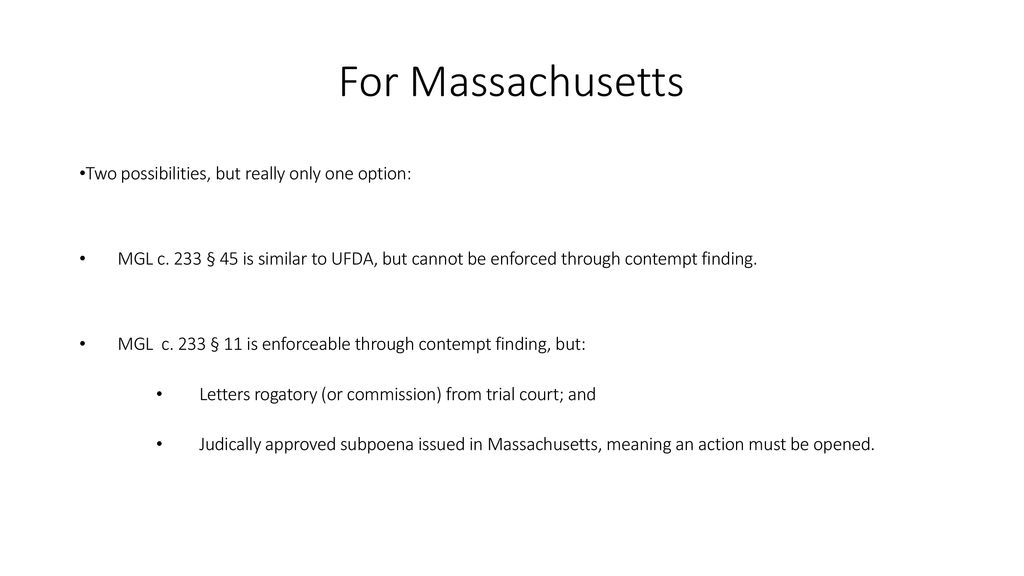Letters Rogatory Explained: Facilitating Legal Cooperation In Between Countries

Interpretation of Letters Rogatory
Letters rogatory are formal demands made by a court in one jurisdiction to a court in another jurisdiction, looking for assistance in acquiring proof or testimony for a legal action. This procedural mechanism is essential in the context of worldwide legislation, where lawful systems may differ, and cross-border participation is required. Letters rogatory assist in the celebration of information that may be important for settling instances, especially in instances including intricate transnational issues.
Normally, these demands emerge in civil, criminal, or administrative matters where a celebration needs proof that is located outside the jurisdiction of the asking for court. The letters function as a method to guarantee that the concepts of due process are supported, making it possible for courts to gain access to evidence that may or else remain unattainable as a result of lawful or geographical obstacles.
The usage of letters rogatory is controlled by global treaties, reciprocal arrangements, or residential regulations, which mark the treatments and commitments of the courts entailed. It is very important to keep in mind that the implementation of such demands is not ensured; they depend upon the legislations and methods of the jurisdiction receiving the letter. Thus, letters rogatory are a pivotal device for cultivating lawful teamwork and making sure justice across borders.
The Refine of Issuing Letters Rogatory
Issuing letters rogatory entails a structured process that ensures conformity with both international and domestic lawful requirements. The asking for party, typically a court or lawful authority, drafts an official demand detailing the nature of the aid sought, the evidence or info required, and the lawful basis for the demand. This record needs to be accurate to help with understanding by the foreign jurisdiction.

The next step entails sending the letters rogatory to the marked international authority. This is usually done via polite networks or worldwide legal assistance frameworks, ensuring that the demand is gotten and acknowledged by the foreign court. The international court after that refines the request according to its very own lawful procedures, ultimately replying to the asking for celebration with the popular information or proof, therefore helping with international lawful teamwork.
Significance in International Law
The significance of letters rogatory in global legislation can not be overstated, as they offer as a critical system for judicial collaboration throughout boundaries. These formal ask for help in legal issues enable courts in one territory to inquire, evidence, or the presence of witnesses from an additional territory, thus facilitating the management of justice in transnational instances.
Letters rogatory are especially important in the context of globalization, where lawful disputes usually cover numerous countries. They make it possible for the collection of evidence that could otherwise be hard to reach, guaranteeing that lawful proceedings are educated and fair. By promoting cooperation between judicial systems, letters rogatory aid copyright the policy of law and promote common respect amongst countries.
Furthermore, the usage of letters rogatory demonstrates a commitment to worldwide standards and principles of teamwork, mirroring the interconnected nature of modern legal techniques. It illustrates the value of sticking to established procedures and treaties, such as the Hague Convention, which supplies a structure for these demands - Letters rogatory. Ultimately, letters rogatory improve the efficiency of lawful procedures, guaranteeing that justice is not impeded by geographical boundaries
Difficulties and Limitations
Regardless of their importance, letters rogatory face several difficulties and restrictions that can restrain their effectiveness. One primary issue is the varying legal frameworks and procedures throughout territories, which can cause misconceptions and hold-ups in the implementation of demands. Various nations might have distinctive demands for the legitimacy of letters rogatory, complicating the procedure additionally.
In addition, the frequently drawn-out nature of worldwide legal participation can hinder prompt accessibility to evidence or witnesses. This hold-up may detrimentally influence legal process or recurring examinations, specifically in instances calling for urgent action. Furthermore, the lack of sources and training in some jurisdictions can result in insufficient handling of demands, causing incomplete or insufficient feedbacks.
Cultural differences and differing mindsets in the direction of lawful processes can likewise pose significant barriers. Nations with less official lawful systems might battle to conform with the step-by-step rigor expected in letters rogatory. Political stress in between countries can influence the readiness to carry out requests, resulting in a lack of collaboration and decreasing the energy of this system in global law. These difficulties necessitate continuous discussion and reform to boost see page the efficacy of letters rogatory in lawful teamwork.
Instance Research Studies and Examples

Conversely, obstacles can develop, as seen in a case involving a European country looking for evidence in an ongoing criminal issue from a non-EU country - Letters rogatory. The process was delayed due to bureaucratic obstacles and differing lawful standards, eventually hindering the examination
These examples show that while letters rogatory can promote worldwide participation and accelerate lawful procedures, they additionally highlight the need for clear interaction and understanding of legal structures between countries. Such situation researches emphasize the relevance of refining this tool to enhance effectiveness and effectiveness in worldwide lawful matters.
Conclusion
In recap, letters rogatory act as a crucial mechanism for facilitating legal cooperation between nations, ensuring the collection of evidence and testimony throughout territories. Their value in international regulation can not be overstated, as they promote due process and boost the performance of cross-border lawful procedures. Difficulties such as varying lawful structures and political stress might impede their effectiveness. see here Proceeded efforts to improve the process and enhance are vital for fostering stronger international judicial collaboration.
Letters rogatory are official demands made by a court in one territory to a court in one more jurisdiction, seeking support in getting evidence or statement for a lawful case. The asking for event, usually a court or legal authority, composes a formal request outlining the nature of the aid sought, the proof or information required, and the lawful basis for the demand. The international court after that processes the request according to its own lawful treatments, inevitably reacting to the requesting party with the desired info or evidence, hence assisting in worldwide lawful cooperation.
Moreover, the use of Recommended Reading letters rogatory demonstrates a dedication to worldwide norms and concepts of cooperation, reflecting the interconnected nature of contemporary legal practices.International legal teamwork through letters rogatory is not without its real-world ramifications, as highlighted by various instance studies that highlight both successes and challenges.